
Cambridge Journal of Anthropology
Scope & Guideline
Bridging theory and practice in the study of humanity.
Introduction
Aims and Scopes
- Interdisciplinary Approaches to Anthropology:
The journal embraces methodologies that combine anthropological insights with perspectives from sociology, political science, and environmental studies, fostering a holistic understanding of human behavior and societal structures. - Focus on Contemporary Social Issues:
Research published in the journal often addresses pressing global challenges such as humanitarian crises, public health, and environmental change, highlighting the relevance of anthropology in understanding and responding to these issues. - Exploration of Trust and Governance:
A significant area of focus is the examination of trust, governance, and social infrastructures, particularly in the context of global health, humanitarian aid, and state formation. - Cultural and Emotional Dimensions:
The journal emphasizes the importance of emotions, affect, and cultural practices in shaping human experiences, particularly in relation to identity, community, and resilience. - Technological and Datafication Studies:
There is a growing emphasis on the implications of technology and datafication for human relationships and societal structures, reflecting the journal's engagement with contemporary digital cultures.
Trending and Emerging
- Human-Machine Interactions:
Recent papers highlight the growing importance of understanding human-machine entanglements, particularly in the context of data collection and analysis, as seen in studies related to population censuses. - Public Health and Humanitarian Response:
The COVID-19 pandemic has catalyzed a surge in research addressing public health, responsibility, and humanitarian aid, underscoring the journal's commitment to exploring the social dimensions of health crises. - Trust and Social Infrastructure:
Themes related to trust and the infrastructures that support it have gained traction, reflecting a broader interest in how trust operates within various contexts, including global health and resource extraction. - Environmental and Climate Change Anthropology:
The journal is increasingly focusing on the anthropological implications of climate change and environmental governance, reflecting a recognition of the urgent need to address ecological crises. - Affect and Emotion in Anthropology:
There is a notable trend towards exploring the role of emotions and affect in anthropological research, particularly in relation to governance, community building, and social relations.
Declining or Waning
- Traditional Anthropological Studies:
There seems to be a decline in papers focused on classical ethnographic studies and traditional cultural practices, as the journal increasingly prioritizes contemporary issues and interdisciplinary approaches. - Purely Descriptive Ethnography:
Research that solely describes cultural phenomena without engaging with broader socio-political contexts is becoming less common, as there is a shift towards studies that critically analyze and interpret cultural practices. - Local or Regional Case Studies:
There appears to be a waning interest in localized ethnographic studies that do not connect to global or transnational themes, as researchers favor broader discussions that address global interconnectedness and its implications. - Focus on Historical Anthropology:
The journal has seen a decrease in the publication of historical anthropological studies, with a stronger emphasis now placed on contemporary issues and their implications for the future.
Similar Journals
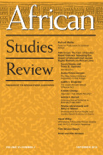
African Studies Review
Pioneering Multidisciplinary Insights into African StudiesAfrican Studies Review, published by Cambridge University Press, serves as a leading academic journal in the fields of Anthropology and Cultural Studies. With a prestigious Q1 classification in Cultural Studies and Q2 in Anthropology, it is recognized for its high impact within the scholarly community, boasting a Scopus ranking in the 83rd and 70th percentiles respectively. Established in 1962, this journal has consistently provided a platform for rigorous analysis and discourse, exploring the complexities of African societies, cultures, and histories through multidisciplinary perspectives. While currently not offering Open Access options, the African Studies Review remains vital for researchers, professionals, and students alike, as it delves into innovative research and critical discussions that shape the understanding of contemporary African issues. Its ongoing commitment to excellence makes it an indispensable resource for those invested in African scholarship.
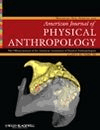
AMERICAN JOURNAL OF PHYSICAL ANTHROPOLOGY
Bridging Disciplines in the Study of HumanityAMERICAN JOURNAL OF PHYSICAL ANTHROPOLOGY, published by Wiley, has established itself as a leading platform in the field of physical anthropology since its inception in 1918. This esteemed journal, identifiable by its ISSN 0002-9483 and E-ISSN 1096-8644, has been instrumental in disseminating groundbreaking research, achieving impressive rankings in both Social Sciences (Rank #18/443, 96th percentile) and Medicine (Rank #9/44, 80th percentile) categories within Scopus. Although its coverage in Scopus has concluded as of 2021, the journal continues to be a vital resource for academics and professionals seeking to explore the biological aspects of human evolution and variation. With a commitment to high-quality, peer-reviewed publications, the journal supports open access to enhance the visibility and accessibility of anthropological research globally. Researchers, students, and professionals are encouraged to engage with the innovative findings published in this journal, contributing to the ongoing dialogue in physical anthropology.
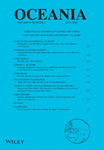
OCEANIA
Fostering Insightful Discourse Across DisciplinesOCEANIA, published by WILEY, is a distinguished journal that has been fostering scholarly discourse in the fields of anthropology and the history and philosophy of science since its inception in 1930. With an impressive impact factor and secure positions in the Q2 quartile for both categories, OCEANIA stands out as an influential resource for researchers and professionals alike. Its latest Scopus rankings reflect its commitment to quality, placing it in the 76th percentile for history and philosophy of science and the 66th percentile for anthropology. Though it does not operate under an open access model, the journal provides robust access options for institutions and individuals to explore its rich array of peer-reviewed articles that contribute to the understanding of cultures and scientific thought across the Pacific region and beyond. As we advance toward its continued convergence into 2024, OCEANIA remains a pivotal platform for innovative research and academic debate, cultivating insights that are crucial for scholars and students navigating the complexities of these interconnected disciplines.
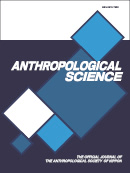
ANTHROPOLOGICAL SCIENCE
Connecting theory and practice in the heart of anthropological research.ANTHROPOLOGICAL SCIENCE is a prominent journal in the field of anthropology, published by the Anthropological Society of Nippon since 1993. With a rich pedigree of scholarly contributions, this journal is an essential platform for disseminating research findings and theoretical discussions that push the boundaries of anthropological knowledge. Currently ranked in the Q3 category in Anthropology by 2023 metrics, ANTHROPOLOGICAL SCIENCE boasts an impressive position at #163 out of 502 in Scopus, placing it in the 67th percentile among its peers. While it operates under a traditional access model, the journal supports a diverse range of anthropological research encompassing cultural, biological, and archaeological perspectives. Researchers, professionals, and students will find valuable insights and innovative methodologies that foster a richer understanding of human societies and behaviors. The current trends and findings published in this journal make it a crucial resource for those involved in anthropological studies or related fields.

Social Analysis
Advancing Critical Insights in Social ResearchSocial Analysis, an esteemed academic journal published by BERGHAHN JOURNALS, is at the forefront of interdisciplinary research, focusing on the dynamic intersections of anthropology, cultural studies, sociology, and the arts and humanities. Since its inception in 2002 and having transitioned to an Open Access model in 2020, the journal ensures that critical social research is widely accessible to scholars and the public alike. With an impressive Q1 ranking in Anthropology and cultural studies and holding a notable Q2 in Sociology and Political Science, it garners attention from a large academic audience, as evidenced by its high Scopus rankings: 10th in general arts and humanities and 153rd in cultural studies. This signifies its influential role in shaping contemporary discourse and providing a platform for innovative ideas and methodologies in understanding social phenomena. Based in Brooklyn, NY, the journal is dedicated to fostering scholarly dialogue and advancing the field, making it an essential resource for researchers, professionals, and students eager to engage with and contribute to the field of social analysis.

Boletin Antropologico
Advancing Anthropological Discourse and UnderstandingBoletin Antropologico, published by UNIV LOS ANDES, is a vital academic journal dedicated to the field of anthropology, focusing on the diverse cultural practices, social structures, and historical contexts of societies, particularly within Latin America. With its ISSN of 0257-750X, this journal aims to provide a platform for researchers and scholars to disseminate their findings and engage in meaningful discussions that advance the understanding of anthropological issues. Although Boletin Antropologico currently does not follow an open-access model, it remains a significant resource for professionals seeking peer-reviewed content that reflects rigorous academic standards. With a commitment to fostering intellectual growth and collaboration among anthropologists, the journal serves as an essential reference for students and practitioners keen on exploring the rich tapestry of human cultures and societies.
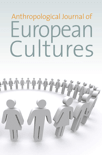
Anthropological Journal of European Cultures
Illuminating the Diversity of European Cultural NarrativesAnthropological Journal of European Cultures, published by BERGHAHN JOURNALS, is a premier Open Access journal dedicated to the exploration and analysis of cultural dynamics within European societies. With an ISSN of 1755-2923 and an E-ISSN of 1755-2931, the journal has been providing a platform for critical discourse in anthropology and cultural studies since its inception in 2008. Catering to a diverse readership of researchers, professionals, and students, the journal plays a vital role in fostering a deeper understanding of European cultures through rigorous scholarship. It has garnered commendable rankings, including Q3 in Anthropology and Q2 in Cultural Studies for 2023, reflecting its growing influence and quality within the academic community. The journal is committed to Open Access since 2020, ensuring that cutting-edge research is freely available to all, thereby enhancing its reach and impact in the global discourse on culture and anthropology. With its comprehensive and interdisciplinary approach, the *Anthropological Journal of European Cultures* serves as an essential resource for advancing knowledge and promoting dialogue in these dynamic fields.
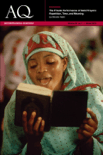
ANTHROPOLOGICAL QUARTERLY
Pioneering Perspectives in Anthropology and BeyondANTHROPOLOGICAL QUARTERLY, published by the George Washington University Institute of Ethnographic Research, stands as a vital resource in the field of anthropology and broader arts and humanities studies. With an ISSN of 0003-5491 and an E-ISSN of 1534-1518, this esteemed journal has been contributing to academic discourse since its establishment in 1981. The journal holds a respected position in both the Q2 category for Anthropology and the Q2 category for Arts and Humanities (miscellaneous), demonstrating its impact and relevance, as evidenced by its rank of #152 out of 502 in the Social Sciences sector for anthropology and rank of #179 out of 552 in the Arts and Humanities field. Researchers, professionals, and students can rely on ANTHROPOLOGICAL QUARTERLY for rigorous peer-reviewed articles that push the boundaries of ethnographic research and anthropological theory, addressing contemporary issues with scholarly precision. The journal’s commitment to fostering critical analysis and interdisciplinary perspectives establishes it as an essential platform for advancing knowledge within its diverse and dynamic field.

Annual Review of Anthropology
Connecting Cultures Through Comprehensive ReviewsAnnual Review of Anthropology is a premier journal published by Annual Reviews, dedicated to providing comprehensive and authoritative reviews in the field of anthropology. Established with the goal of synthesizing essential research findings, this influential publication not only shapes contemporary anthropological discourse but also facilitates interdisciplinary dialogue within the broader realm of social sciences and cultural studies. With an impressive impact factor that places it in the Q1 category across multiple classifications, including Anthropology and Arts and Humanities, this journal is highly regarded by researchers and academics alike. The Annual Review of Anthropology has been a trusted resource for critical insights and transformative ideas, helping to advance the understanding of human societies from 1980 to the present. Although it does not offer open access, access to its articles is available through various academic institutions, ensuring that both seasoned scholars and students can benefit from its wealth of knowledge. With a Scopus ranking placing it in the top percentiles for relevant subjects, this journal is essential reading for anyone looking to stay at the forefront of anthropological research.
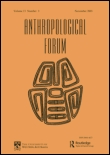
Anthropological Forum
Connecting Scholars to Transformative IdeasAnthropological Forum, an esteemed journal in the field of anthropology, is published by Routledge Journals, Taylor & Francis Ltd. With an ISSN of 0066-4677 and an E-ISSN of 1469-2902, the journal has cemented its reputation for fostering critical discussions and innovative research since its inception in 1963. Covering a broad range of topics within anthropology, it has achieved an impressive Q1 ranking in the category of Anthropology and a Q2 ranking in Arts and Humanities (miscellaneous) in 2023, showcasing its pivotal role in advancing scholarly discourse. With a Scopus ranking placing it in the top 10% of its field, the journal provides valuable insights into contemporary anthropological issues, making it an essential resource for researchers, professionals, and students alike. Although not an open-access journal, the comprehensive studies and articles published within its pages contribute significantly to the academic and professional community. Addressed out of Milton Park, Abingdon, UK, the Anthropological Forum remains a seminal platform for disseminating high-quality anthropological research.